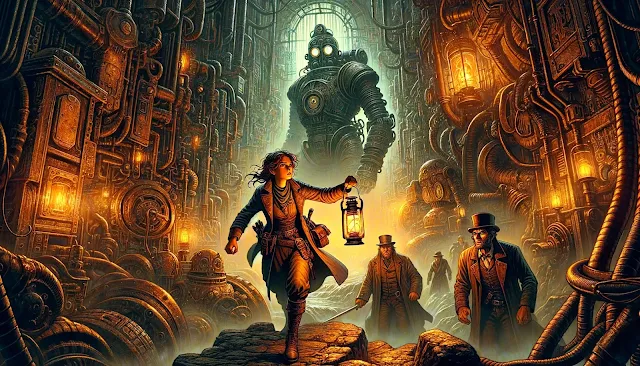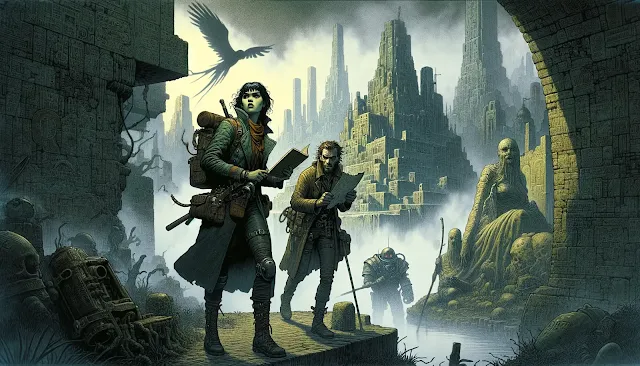"Fever Crumb" by Philip Reeve is more than a prequel to the Mortal Engines quartet; it is a masterful historical detective story where the mystery is history itself. Set centuries before the age of predator cities, the novel explores a society haunted by its past and terrified of its future. Through its protagonist's journey, it delves into profound themes of identity, the conflict between logic and superstition, and the inescapable, cyclical nature of human conflict.
The Haunted City: History as an Unstable Foundation
The post-apocalyptic London of "Fever Crumb" is a city built precariously atop the bones of its past. The society is fractured into warring ideological factions, each with a different relationship to history. The Order of Engineers, who rule the city, worship a sanitized version of science and logic, rejecting the past as irrational chaos. In direct opposition are the Skinners, a superstitious mob who fear the past and seek to violently purge its remnants. A third group, the Papists, hoard historical knowledge and artifacts for their own power. This landscape establishes the novel's central conflict: a war over the control and interpretation of history itself.
The remnants of previous civilizations are not merely ruins but active, dangerous forces. The discovery of "Old-Tech" artifacts prompts reflection on the causes of societal collapse, suggesting that despite technological shifts, fundamental aspects of human nature, like greed and fear, lead to the same destructive patterns. The story of the Scriven, a genetically engineered race that once ruled and fell, becomes a cautionary tale that illustrates how power, unchecked by ethics, inevitably leads to self-destruction.
The Rational Mind in a World of Ghosts
The theme of identity is explored through the protagonist, Fever Crumb. Raised by the Engineers, she is the perfect product of their philosophy: her head is shaved, her mind is trained in pure logic, and she has been deliberately shielded from emotion and history. She is a creature of pure, forward-looking rationality. Her journey of self-discovery begins when she is sent to work with the archaeologist Kit Solent, forcing her to confront the messy, irrational, and fascinating world outside the Engineers' walls.
This journey becomes a matter of life and death when rumors spread that Fever may be the last surviving Scriven. Suddenly, she is no longer just an Engineer; she becomes a living ghost, a physical embodiment of the history that the city both fears and desires. The violent "Scriven Hunts" carried out by the Skinners transform her identity from a philosophical question into a mortal threat. She is forced to realize that her "logical" upbringing and her potential "Scriven" heritage are just two competing stories about who she is. Her true identity will be forged not by her past, but by the choices she makes in a present that is trying to kill her for it.
The Birth of the Future
All of the novel's themes detonate in its tragic climax. The riots between the Engineers and the Skinners show history repeating itself, as reason and superstition tear the city apart. This conflict has a devastatingly personal cost. Kit Solent, a good man and loving father, is destroyed by these warring ideologies. His subsequent transformation into the first Stalker, the cyborg who will one day be known as Shrike, is the ultimate consequence of this cycle. He becomes a monster made of technology, driven by a broken memory of the past.
In the end, the only escape from this cycle of violence is to move. The creation of the first moving city head is not just a technological triumph; it is the beginning of the next cycle of history, the very engine that will drive the world toward the age of Municipal Darwinism. The novel suggests that even our attempts to break from the past are doomed to create new, more monstrous versions of it.
Ultimately, "Fever Crumb" is a profound origin story that stands as one of Reeve's most complex works. It argues that the great, world-spanning conflicts of the Mortal Engines saga were all born from the deeply personal struggles over identity, memory, and ideology within the haunted ruins of a single city. It is a thrilling, unsettling, and essential piece of storytelling.


















